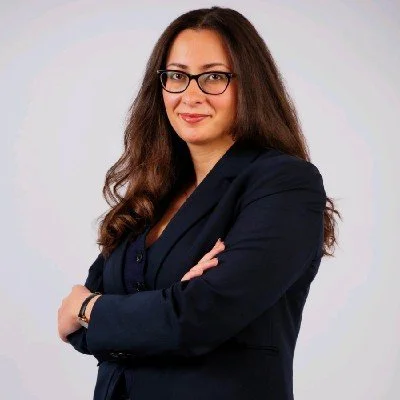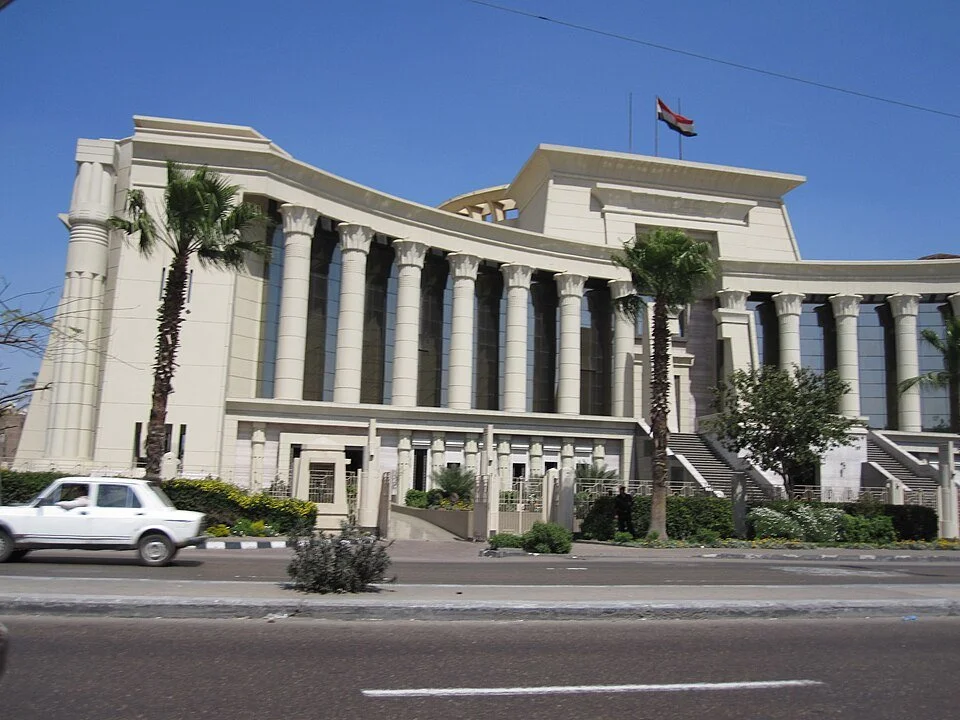Litigation in Egypt
Egypt has long been a famous center of culture and commerce. And so I was really excited to visit when I had the chance to go in 2008. Unfortunately, I got there just a few thousand years too late to see any pharaohs, and I was too busy seeing tourist sites to learn about how Egyptians in modern times resolve their commercial disputes. I finally got around to addressing my curiosity, as Salma Nasreldine, a senior associate at the Shahid Law Firm in Cairo, was kind enough to speak with me about litigation in Egypt.
Why should you continue reading this post about litigation in Egypt?
You have already read my interviews with litigators in other African countries, such as Morocco, Nigeria, and Ethiopia.
You are interested in hearing about how Egyptian lawyers incorporate artificial intelligence into their work.
You are curious about the influence of the French legal system in Egypt.
Salma Nasreldine is a senior associate at the Shahid Law Firm in Cairo.
Can you tell me about the kinds of disputes you handle in your legal practice?
We are a fully-fledged law firm with a broad practice that covers a wide range of disputes. These include construction, investment, commercial and shareholders, IP and TMT and energy-related disputes. We also handle employment-related litigation.
Our work spans both national courts and international arbitration, depending on the nature and scope of the case. This diverse experience allows us to provide tailored dispute resolution strategies across sectors and forums.
What type of clients do you generally represent in disputes?
We primarily represent large businesses, both local and international, as well as foreign investors. Our clients operate across various sectors, including construction, energy, finance, real estate, pharmaceuticals, aviation, IP and TMT. Many of them are multinational corporations or institutional investors involved in complex, high-value disputes.
Besides Microsoft Office, what software do you use in your practice?
We use a range of legal technology tools to support our practice. In addition to our firm’s software, with the rise of AI in the legal field, we have incorporated platforms like Jus AI for intelligent research and drafting support.
What books and websites do you use for legal research?
In addition to AI tools and standard office software—which includes access to doctrinal resources and case law databases—we regularly utilize platforms such as Jus Mundi and Kluwer Arbitration for international arbitration and comparative legal research, as well as East Law for domestic jurisprudence and legal materials.
We do rely of course on Egyptian doctrinal books, but we often consult French doctrinal views.
Image credit: https://en.wikipedia.org/wiki/Supreme_Constitutional_Court_(Egypt)#/media/File:Supreme_Constitutional_Court_of_Egypt.JPG
Do lawyers cite the laws of other countries in their work?
Yes. Depending on the parties involved and the specific circumstances of the dispute, Egyptian lawyers may reference provisions from neighboring legal systems. Most notably, French legal principles and judicial precedents have a strong influence on Egyptian law, given that the Egyptian legal system is rooted in the French civil law tradition.
On occasion, we may also refer to English case law—particularly in arbitration—to resonate with common law-trained arbitrators, such as UK solicitors. While such foreign references are less often cited in court proceedings, some judges, like Justice Nabil Omran, have been known to draw on French legal doctrine and principles of law in their reasoning. In all cases, these references serve as persuasive guidance rather than binding authority.
Do you electronically file pleadings with the court? Or must you send paper copies of them to the courthouse?
In the South of Giza and Economic Courts, it is possible to initiate lawsuits through their dedicated online platforms. However, any memoranda or exhibit bundles must still be submitted in hard copy during the hearing itself. These online platforms are particularly useful for litigants to track the progress of their cases, as scanned copies of hardcopy filings are often uploaded—either by the court or by the parties themselves. They also provide easy access to hearing dates, adjournments, and other procedural updates.
Does Egypt have specialized courts that only hear commercial cases?
Yes. It is either the commercial circuits that are established within the civil courts or the Economic Courts which scope encompasses a multitude of cases.
Who decides the facts in a commercial case? Is it a judge or a jury?
The Egyptian legal system does not have a jury system. It is always a judge or a tribunal of judges.
Generally speaking, how is evidence exchanged between the parties before trial?
Evidence is not exchanged between the parties prior to hearings. In the normal course, each party submits its evidence during the hearing itself. At that stage, the opposing party could review the evidence and, if needed, may request leave from the court to examine it further. Such requests are typically granted to ensure due process.
Do you get to interview the opposing witnesses before the trial?
As for witness examination, we do not have a practice of interviewing or deposing opposing witnesses before the hearing.
Generally speaking, how many pages are the complaints or initial pleadings you see in your work?
It really depends on the type and complexity of the case. Simpler matters—like straightforward employment or small-scale commercial disputes—might be 5–10 pages. More complex cases, especially in high stake commercial disputes, construction, investment, or shareholder disputes, can go up to 50–60 pages.
That said, courts—often overloaded—rarely have the time or interest to delve into excessively long pleadings, so concise and targeted submissions are key.
Generally speaking, how long does it take for a case to go from complaint to judgment?
The timeline from complaint to judgment largely depends on the type of case and the court handling it.
For example, Economic Courts tend to operate on more efficient timelines, with judgments often issued within six months. In criminal matters, the deadlines are generally even shorter due to procedural urgency. However, in civil or commercial cases—especially complex or heavily contested ones—the process may take longer, particularly if appeals or procedural delays arise.
If you win, does the other side reimburse your attorneys’ fees?
No, the losing party does not typically pay the legal fees of the winning party. Each party is responsible for the costs of its own legal representation. However, court fees—such as filing or administrative fees—may be recoverable by the prevailing party, depending on the court’s discretion and applicable procedural rules. The court fees represent 7.5% of the claimed amounts. The plaintiff bears a portion thereof at the time of initiating the claim and the losing party bears the rest of the 7.5% after the issuance of the final judgement.
Are Egyptian courts open to the public? Can ordinary people watch a commercial trial?
Yes, Egyptian courts are generally open to the public. Anyone may attend and observe a hearing, including commercial trials. This is grounded in the Egyptian Constitution, which establishes the principle of public hearings as a safeguard of transparency and due process. The only exception is when the court orders the hearing to be held behind closed doors—for reasons such as public order, national security, or the protection of privacy.
Do you believe that Egyptian courts have a particular strength for resolving commercial disputes?
One strength of Egyptian courts in commercial disputes is the existence of specialized Economic Courts, which offer more expertise and faster timelines.
How about a weakness?
A key weakness is procedural delay in enforcement (namely arbitral awards) and appeal stages, which can undermine overall efficiency.
How often do you go to the courthouse?
We go to court almost every day, except Fridays, which are non-working days for the judiciary.
When you are there, do you need to wear a special robe or wig?
Lawyers are required to wear a robe during hearings—it is very similar in shape and color to the traditional French robe, reflecting the influence of civil law traditions in Egypt.

